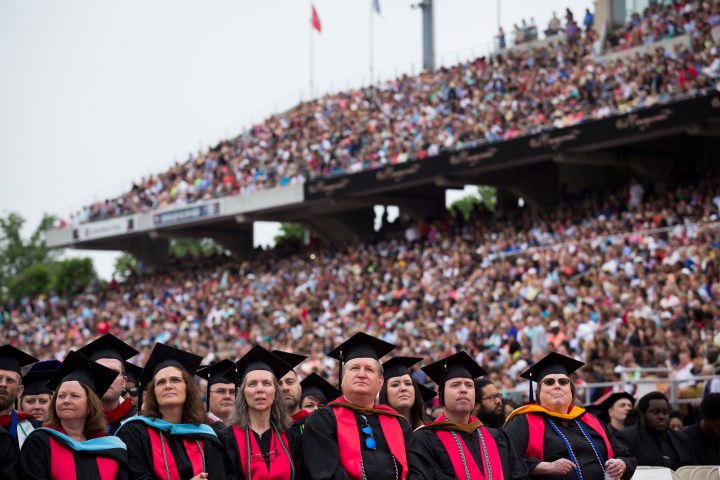
Colleges and universities may find borrowing harder to do and more expensive
Colleges and universities may find borrowing harder to do and more expensive

We all know what happens when your credit score goes down: it gets harder to borrow, and more expensive. Same goes for companies and institutions that sell bonds to raise money. Well, Fitch Ratings is warning that scenario may be on the way for higher education institutions.
The credit rating agency released a report saying colleges and universities are facing economic headwinds, essentially letting bond investors know to keep an eye on them.
The problems colleges are dealing with, in business terms, are: fewer customers (which is to say, declining enrollment) and increased costs (in the form of higher wages for faculty and staff).
“And so there’s a squeeze at both ends when it comes to year to year operations,” said George Edwards-Stimola, one of the authors of that new report from Fitch.
He notes there’s also a limited appetite for colleges to raise their prices — aka tuition.
And now, with interest rates rising, if a college does want to try to attract more students by building a fancy new gym or dorm, Edwards-Stimola points out the cost of capital for those borrowing efforts is increasing.
Another financial concern? Dealing with old debts that are now coming due. After the 2008 recession, lots of colleges took out loans — not for residence halls or science labs — but for regular old maintenance, said Dominique Baker of Southern Methodist University.
“There just wasn’t money available to do the unsexy things, like making sure that a building is kept up to date, that its heating system is kept up to date, that asbestos is being taken care of,” she said.
These financial challenges will be easier to handle for private colleges with large endowments, said Catharine Hill of the education non-profit Ithaka S&R.
Also, there’s another factor at play.
“It depends on who your students are,” Hill said. “If your applicant pool is mostly middle income students, and you need to give a lot of financial aid to make it possible for students to come, you’re going to be in a tough position.”
Hill points out that some schools are already cutting costs by eliminating whole academic departments and laying off faculty.
And Fitch predicts we’ll continue to see more institutions merge — or close.
There’s a lot happening in the world. Through it all, Marketplace is here for you.
You rely on Marketplace to break down the world’s events and tell you how it affects you in a fact-based, approachable way. We rely on your financial support to keep making that possible.
Your donation today powers the independent journalism that you rely on. For just $5/month, you can help sustain Marketplace so we can keep reporting on the things that matter to you.











